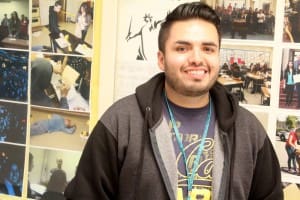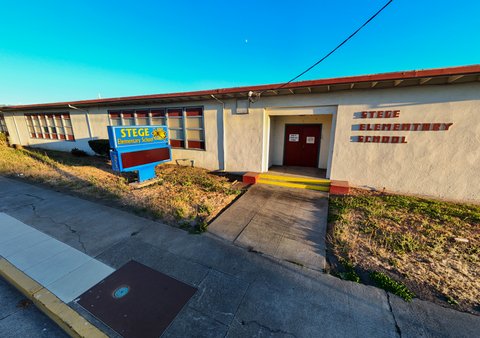
08 Oct Q&A: Navigating High School When You Don’t Speak the Language
Interview, RP Editors
Editor’s Note: Richmond High School tutor Ivan Rodriguez helps more than 100 students who don’t speak English understand their teachers and get through high school. Most of the students are from El Salvador, Guatemala, Honduras and Mexico.
The CC Pulse: How did you start doing this work?
Ivan Rodriguez: I came to this country when I was 16 and came to Richmond High School. When I graduated from high school I went to Contra Costa College to learn English — because I didn’t learn a lot of English in high school — and from there I transferred to [the University of California at] Berkeley, where I got my bachelor’s in organizational behavior.
First I wanted to be a businessman. I even started working for a law firm. But I noticed they didn’t take the cases if people did not have the money to pay, so I’ve seen people do a lot of work for selfish reasons. I wanted to work for a non-profit and work with youth and work on something related to education, and with kids who are in the high school-to-college transition.
I wanted to work with my community, because I saw there was a lack of attention to ELD [English Language Development] students when it came to preparing them for college.
RP: What are the some biggest challenges that your ELD students face?
IR: Some of the kids come from countries where they never went to school and they do not know how to read in their native language. It is difficult, because the school doesn’t have someone to teach them basic skills. This makes kids fall behind, and they cannot keep up with the curriculum.
Some of the students are forced to come to school because they are still under 18 — maybe they came to the U.S. to work, but because they are underage they have to go to school. Sometimes that creates a behavioral problem, one we are facing right now. Someone needs to be the bridge between them and the other students in the school. That is what I am doing right now. I am that link between the administration and them, because they come to me to see if I can help them. I am their way of communication.
RP: What is your approach to tutoring?
IR: I need a small group, to be able to pay more individual attention to them. If they have a test coming up, I sometimes pull them out of other classes like physical education to have a review session, or meet them during lunch. We have a club called Alma Latina [Latin Soul], and this club gives them a voice and also has an academic part to it — we meet after school and go over basic English and vocabulary, so we help them acquire more knowledge about the language.
RP: How is teaching recently arrived immigrant students different from teaching other students?
IR: One of the things I have noticed is that the ELD students came here for a reason. They try to learn; they have more respect for the teachers. They want to learn but don’t always get the chance. But because the kids do not speak English, they do not get involved in regular activities, they never get information about college and they do not get other resources on campus.
RP: What are the most important skills your students need to be able to go to college? Are they getting these things here?
IR: Students need to learn English, but they need four years of English to be able to get into a four-year college, and ELD does not count as an English credit — only the last level of the program counts. Basically, an ELD student needs to work extremely hard their freshman year to get out of ELD, which is almost impossible.
So, ELD fills the requirement for high school graduation but does not fulfill the requirement for college. That is a big challenge for all of us. That was the case for me — I applied to some colleges, but didn’t get in because I was lacking those requirements.
Also, since they do not speak English, they do not get involved in different programs that make you a stronger candidate for college. They do not learn about all the scholarships and financial aid that is available. Some of the students think they cannot go to college because they do not have papers, which is not the case.
Right now I am working with the community college here to help be an example to students, to let them know they can still go to a community college and then transfer to a four-year college later.







Sorry, the comment form is closed at this time.